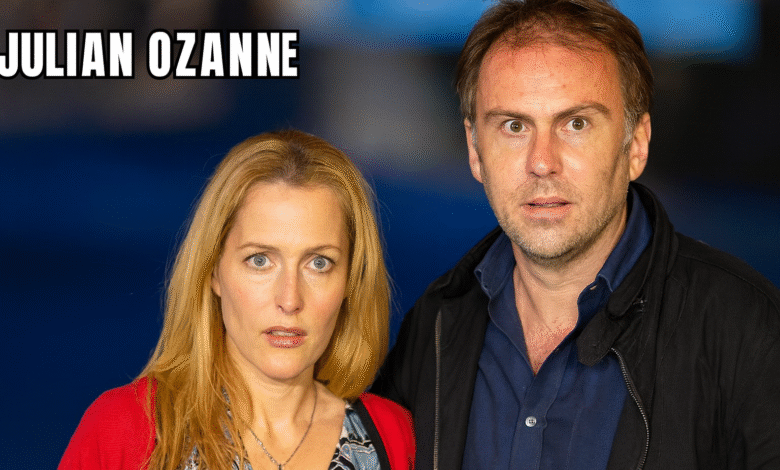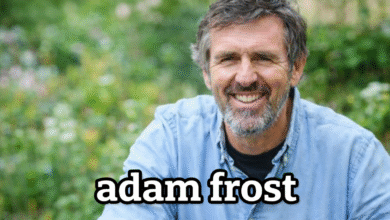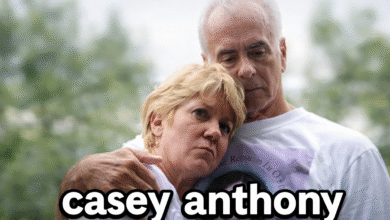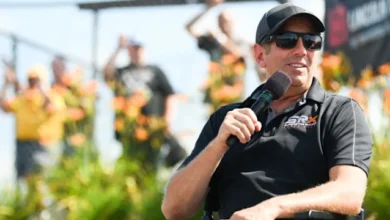Julian Ozanne: A Life of Journalism, Filmmaking, and Global Perspective

Introduction
Julian Ozanne is a distinguished British journalist, film producer, and social activist known for his unique approach to storytelling and his deep engagement with international affairs. Over the years, Julian Ozanne has built a reputation that transcends media boundaries — from documentary filmmaking to socio-political advocacy. His ability to merge journalistic integrity with cinematic expression has earned him recognition in both the journalistic and creative worlds.
Early Life and Education
Born in Kenya, Julian Ozanne spent much of his early life surrounded by diverse cultures and global perspectives that would later shape his professional interests. He attended the prestigious London School of Economics (LSE), where he studied economics and international relations. This academic foundation became central to his future career, as he frequently tackled global issues such as governance, human rights, and socio-economic reform in his journalistic work.
The experiences of growing up between Africa and Europe gave Julian Ozanne a multifaceted worldview — one that combined empathy with critical inquiry. This early exposure to contrasting societies ignited his lifelong curiosity about how culture, politics, and economy intersect.
Career in Journalism
Julian Ozanne began his career as a foreign correspondent, where he covered political developments, economic policies, and humanitarian crises. He worked with globally respected organisations, including the Financial Times, reporting on African affairs and the shifting dynamics of post-colonial economies.
As a journalist, Julian Ozanne distinguished himself by focusing on underreported regions and complex international issues. His analytical style combined economic insight with a humanitarian lens, offering readers a comprehensive understanding of geopolitical developments. Through his insightful reporting, Julian Ozanne built credibility as a voice for balanced and evidence-based journalism.
Transition to Documentary Filmmaking
After years in print media, Julian Ozanne transitioned into documentary filmmaking — a move that allowed him to visualise the stories he had long covered in writing. His documentaries often tackle socio-political themes such as environmental degradation, corruption, and social inequality in Africa and beyond.
Through his films, Julian Ozanne demonstrated a deep commitment to truth and awareness. His storytelling blends factual reporting with emotional depth, creating narratives that resonate across cultures. The ability to combine technical accuracy with human empathy remains a hallmark of his work.
Humanitarian and Social Involvement
Beyond journalism and filmmaking, Julian Ozanne is actively involved in humanitarian and development initiatives. He has supported organisations advocating for sustainable development, social justice, and education in Africa. His engagement reflects a belief that journalism and art should not only inform but also inspire action.
As a result, Julian Ozanne is frequently invited to speak at conferences and panels discussing media ethics, post-colonial Africa, and the role of storytelling in development. His influence goes beyond the screen or newspaper column; it extends into policy discussions and advocacy for transparent governance.
Personal Life and Public Attention
While Julian Ozanne is widely respected for his professional achievements, his personal life has also drawn public interest. He was previously married to actress Gillian Anderson, renowned for her role in The X-Files. Their marriage, which lasted from 2004 to 2006, brought Julian Ozanne into the spotlight of international media. Despite the attention, he has maintained a private and dignified stance about his personal affairs, focusing instead on his creative and humanitarian work.
This balance between private integrity and public impact has earned Julian Ozanne admiration from both peers and audiences. Even after his high-profile marriage ended, he continued to focus on meaningful storytelling and advocacy, reinforcing his identity as a professional independent of celebrity associations.
Influence and Legacy
Today, Julian Ozanne stands as an influential figure who bridges the worlds of media, politics, and human development. His body of work demonstrates how journalism can evolve into art without losing its ethical compass. Many aspiring journalists and filmmakers cite Julian Ozanne as a role model for maintaining intellectual honesty and social responsibility.
Through both his films and writings, Julian Ozanne continues to challenge narratives that oversimplify Africa’s realities. Instead, he presents nuanced stories that highlight the resilience, creativity, and complexity of its people. His contribution has been vital in shaping international perceptions about the continent, urging the world to look beyond stereotypes.
The Philosophy Behind His Work
At the core of Julian Ozanne’s philosophy is a belief that storytelling holds transformative power. Whether through investigative reporting or visual media, he views communication as a tool for social progress. His work often explores the intersections of power, ethics, and identity, encouraging audiences to think critically about the systems shaping their world.
In this sense, Julian Ozanne represents the evolution of the journalist in the modern era — one who not only reports facts but also contextualises them within the moral fabric of society. His dedication to authentic representation and factual integrity underscores his lifelong mission to inform, inspire, and provoke meaningful dialogue.
Modern Recognition and Continuing Impact
Even decades into his career, Julian Ozanne remains relevant in global discussions surrounding journalism, ethics, and documentary filmmaking. His continued involvement in global forums reflects a deep understanding of how information shapes perception. By combining academic discipline with artistic expression, Julian Ozanne has carved a unique space in contemporary media culture.
In a time of widespread misinformation, his emphasis on evidence-based storytelling and cross-cultural understanding is more essential than ever. Julian Ozanne’s career embodies a timeless reminder: journalism, when guided by empathy and integrity, can change how societies see themselves and each other.
FAQs About Julian Ozanne
1. Who is Julian Ozanne?
Julian Ozanne is a British journalist, documentary filmmaker, and social activist known for his work on political and humanitarian issues, especially in Africa.
2. What is Julian Ozanne best known for?
He is best known for his documentaries and journalistic contributions that explore political, economic, and social themes across the developing world.
3. Was Julian Ozanne married to Gillian Anderson?
Yes, Julian Ozanne was married to actress Gillian Anderson from 2004 to 2006. Despite their separation, he continues to focus on his professional and philanthropic pursuits.
4. What topics does Julian Ozanne’s work cover?
Julian Ozanne’s work covers international development, African politics, environmental justice, and human rights, often blending journalism with storytelling.
5. What is Julian Ozanne doing today?
Julian Ozanne remains active in media, production, and advocacy circles, promoting ethical journalism, cultural representation, and humanitarian awareness through his projects.



